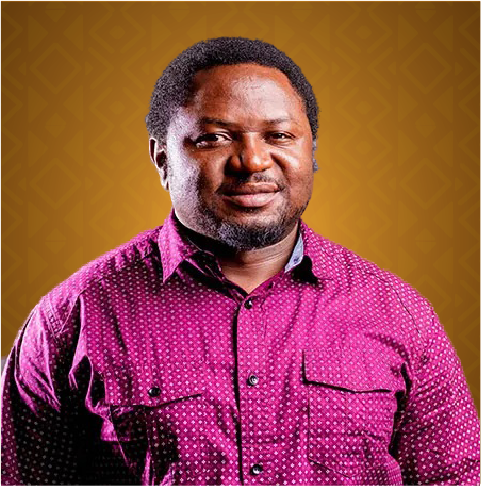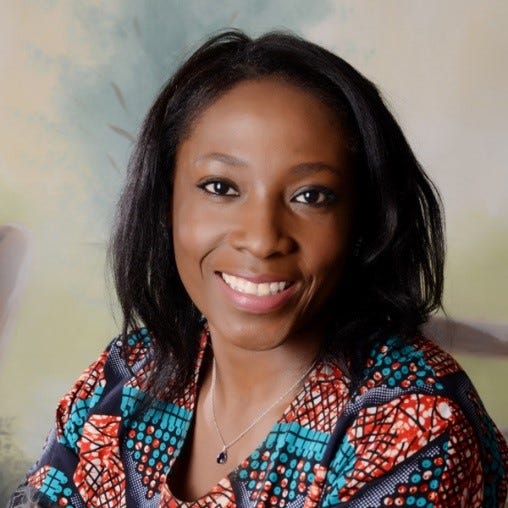African Leaders Push for Financial Reform, Reparations at AU Summit
The summit's clear message is that maintaining the status quo is no longer acceptable and that meaningful reform of the global financial architecture is essential for Africa's future development.
ADDIS ABABA, Ethiopia— Three leading African policy experts called for an overhaul of what they termed an outdated and inequitable global financial system during a virtual press briefing Wednesday ahead of next week's African Union summit, writes Winston Mwale.
Speaking via video conference, the experts highlighted how the current financial architecture, designed during the colonial era, continues to disadvantage African nations through high borrowing costs and restricted access to capital.
"The design of the system that exists did not incorporate the sovereign African nation that we have today," said Serah Makka, Africa Executive Director at the ONE Campaign, during the online event hosted by AFRODAD, ONE Campaign, and Christian Aid.
"If we can't have capital, adequate, cheap, appropriately priced capital, then we don't have a conversation to start about our advancement and our development."
Adrian Chikowore, Senior Pan-Africa Advisor at Christian Aid, told participants that historical injustices remain deeply embedded in current financial structures.
"The historical exploitation and injustices have resulted in profound socioeconomic implications which continue to shape and devastate the continent today," he said.
Dr. Yunggong Theophilus Jong, Policy and Advocacy Manager at AFRODAD, pointed to specific institutional barriers during his presentation.
"When it comes to institutions such as the IMF and World Bank that play a key role in financial governance, you see that the laws and the rules are set by the colonialists," he said.
The Wednesday briefing, moderated by Citizen Television's Yvonne Okwara, revealed that 25 African nations now spend more on servicing their debt than on combined healthcare and education budgets.
The push comes as 25 African nations now spend more on servicing their debt than on combined healthcare and education budgets, according to data presented at the summit.
This financial strain has prompted urgent calls for systemic change, with leaders arguing that the current framework, established between the 1920s and 1940s during the colonial era, fundamentally undermines African development.
The summit's discussions, moderated by prominent journalist Yvonne Okwara of Citizen Television, have highlighted how the existing financial structure impacts everything from climate change response to basic development needs.
"One of the ways perhaps to ensure justice is through reforming the global financial architecture to making sure that it's equitable, particularly for those that need it the most," Okwara said, framing the summit's central theme.
HISTORICAL CONTEXT
Experts at the summit emphasized that current financial challenges facing African nations are deeply rooted in historical injustices.
Adrian Chikowore, Senior Pan-Africa Advisor at Christian Aid, drew direct lines between contemporary economic struggles and the legacy of colonialism.
"The historical exploitation and injustices have resulted in profound socioeconomic implications which continue to shape and devastate the continent today," Chikowore said.
He argued that any meaningful reform must address these historical inequities, including through debt cancellation and structural changes to international financial institutions.
The role of institutions like the International Monetary Fund (IMF) and World Bank has come under particular scrutiny.
Dr. Yunggong Theophilus Jong, Policy and Advocacy Manager at the African Forum and Network on Debt and Development, highlighted how these organizations' governance structures continue to reflect colonial-era power dynamics.
"When it comes to institutions such as the IMF and the World Bank that play a key role in financial governance, you see that the laws and the rules are set by the colonialists," Dr. Jong said.
He noted that while the IMF remains European-led, the World Bank's leadership is traditionally appointed by the U.S. president, creating what he described as a significant power imbalance.
CAPITAL ACCESS DISPARITIES
A key focus of the summit has been the stark disparities African nations face in accessing international capital markets.
According to the analysis presented by Makka, African countries consistently pay higher interest rates compared to nations with similar credit ratings from other regions.
This premium on capital access has created what experts describe as a self-perpetuating cycle of underdevelopment.
African nations, forced to allocate significant portions of their budgets to debt servicing, find themselves with diminished resources for critical investments in infrastructure, education, and healthcare.
"We need to investigate why there is a bias for African countries when it comes to the global economy and the global financial architecture, especially as to the price of capital," Makka said, pointing to South Africa's current G20 presidency as a potential opportunity to address these systemic biases.
CLIMATE FINANCE AND REPARATIONS
The intersection of climate change and financial justice has emerged as another crucial theme at the summit.
Chikowore emphasized the need for climate finance to be provided as grants rather than loans, arguing that this approach better reflects the historical responsibilities of major carbon emitters.
"The provision of this finance is a moral obligation, the payment of an ecological debt owed by historical emitters to countries that have played little part in causing the climate crisis, but are on the front line of the impacts," he said.
This position reflects a growing consensus among African leaders that climate finance should be viewed through the lens of reparative justice rather than traditional development aid.
The summit has highlighted how African nations, despite contributing minimally to global carbon emissions, bear disproportionate climate change impacts while struggling to access funds for adaptation and mitigation.
INSTITUTIONAL REFORM PROPOSALS
Summit participants have outlined several specific proposals for reforming global financial institutions. These include:
Dr. Jong emphasized that meaningful reform must address both governance structures and operational policies.
"Reforming the global financial architecture requires a concerted effort to seal these leakages," he said, referring to illicit financial flows that continue to drain resources from the continent.
The summit has also focused on the need for African nations to move from being "rule takers" to "rule makers" in the global financial system.
This shift, according to Dr Jong, would recognize that "the global financial system has been built out of the sweat, out of the blood, out of the contributions of African countries and out of the extractivist economy that has been imposed on African countries."
AFRICAN UNION'S ROLE
The African Union's position as a continental coordinator has been emphasized throughout the summit.
Chikowore highlighted the AU's unique ability to advocate for justice on the global stage while ensuring affected communities' voices are heard in international forums.
The organization's role in coordinating African positions at venues like the United Nations and G20 has been identified as crucial for achieving meaningful reform.
Makka stressed the importance of unified leadership, stating, "We want this message to be sent to the African Union. It is not enough that they gather, they need to be able to project the inspiration that we need as citizens of the continent."
LOOKING AHEAD
As the summit concludes, attention turns to implementation and next steps.
The gathering has produced what participants describe as a clear mandate for reform, but challenges remain in translating these discussions into concrete changes in the global financial architecture.
South Africa's G20 presidency has been identified as a key opportunity to advance these reforms.
African leaders plan to use this platform to push for specific changes in how international financial institutions operate and how they engage with African nations.
The summit's outcomes suggest a shifting dynamic in how African nations approach global financial governance.
Rather than accepting existing frameworks, leaders are increasingly unified in demanding fundamental changes that address historical inequities while creating space for African development.
This push for reform comes at a critical moment, as global challenges from climate change to post-pandemic recovery require coordinated international responses.
The success of these efforts could significantly impact not just Africa's economic future, but the structure of global financial cooperation in the decades ahead.
As Chikowore noted in his closing remarks, "These institutions have contributed far more to the inequalities and destitution that we see in Africa."
The summit's clear message is that maintaining the status quo is no longer acceptable and that meaningful reform of the global financial architecture is essential for Africa's future development.






